|
 | |||||||||
|
??
The rising price of oil, gas and other commodities, because of rising demand as reconstruction work begins in Japan, will keep China's inflationary pressure at a high level, World Bank economists said on March 21. [Full story]
Worried shoppers stripped stores of salt in Beijing, Shanghai and other parts of China on Thursday in the false belief that it can guard against radiation exposure, even though any fallout from a crippled Japanese nuclear power plant is unlikely to reach the country. The panic buying was triggered by rumors that iodized salt could help ward off radiation poisoning - part of the swirl of misinformation crisscrossing the region in response to Japan's nuclear emergency. [Full story] Related reading: Salt market order back to normal: MOC
China's electronics market has been severely affected by the aftermath of the earthquake and tsunami that hit Japan on March 11.
That's because many Japanese electronics companies have closed their factories in the country, meaning that supply in certain Chinese markets is facing intense shortages that could last until June.
A swathe of top-name Japanese electronics manufacturers, including Sony Corp, Toshiba Inc, Canon Inc and Panasonic Corp, have been forced to close their factories in areas affected by Friday's disaster. Up to six Sony manufacturing plants have been shut down. [Full story]
??
?
Related reading: Electronic components prices go up?? New
 ?HK to monitor Japanese food imports ?HK to monitor Japanese food imports The Center for Food Safety in Hong Kong will check fresh products from Japan for radiation, the secretary for Food and Health Dr York Chow said.
According to Chow, Hong Kong does not rely largely on Japan for its food supply and whether to quit importing products from Japan will depend on the level of pollution. [Full story]
??
  Steel mills raise oriented silicon steel prices Steel mills raise oriented silicon steel pricesOriented electrical steel, also known as oriented silicon steel, is used for the core of transformers, rectifiers and reactors.
Japan is one of China's major exporters of steel, especially high-end steel products such as oriented silicon steel.?The earthquake caused some Japanese steel mills to stop production, which will result in a decrease in its exports. [Full story]
 Iron Ore-Spot prices fall further Iron Ore-Spot prices fall furtherSteelmaking facilities in Japan, the world's second-largest producer after China, have been disrupted as a result of the massive earthquake and tsunami that struck the country on March 11.
Spot offers of Indian ore with 63.5 percent iron fell to as low as $168-$170 per tonne delivered to China, from $170-$174 a tonne on Tuesday, traders said.
While the quake will not make a huge difference to available iron ore supplies, it has had a psychological impact on Chinese traders and prices are falling more quickly, Oriental Securities said in a note.?[Full story]
??
 Japanese automakers: China operations unaffected Japanese automakers: China operations unaffected The operation of Japanese automakers in China won't be affected in the short term even as their domestic production is halted in the aftermath of March 11's severe earthquake and tsunami, automakers said. However, the long-term impact is still under assessment, they said. [Full story]  Outsourcing companies were affected by Japan earthquake Outsourcing companies were affected by Japan earthquake "China's software-outsourcing industry may be affected by an economic slowdown in Japan as the latter is the major source of business, accounting for 60 percent of the total," Essence Securities Co Ltd said in a research note.
But he said that the negative impact is not likely to last for too long because rebuilding work in Japan will benefit Chinese providers. [Full story]
 Nuclear power standards come under scrutiny?? Nuclear power standards come under scrutiny?? China Guangdong Nuclear Power Group Co, the majority owner of the Daya Bay plant near Hong Kong, is conducting safety checks on its power stations, including those under construction, following the Japan nuclear crisis. [Full story]
 Approvals halted for new nuclear plants Approvals halted for new nuclear plantsChina will suspend approval of new nuclear power stations and assess all nuclear projects, including those under construction, in the wake of the Japan crisis, the State Council said on March 16.
A thorough safety check of nuclear facilities, and projects under construction, will be conducted immediately. [Full story]
 Solar power favored after nuclear leakage in Japan Solar power favored after nuclear leakage in JapanNuclear leakage in Japan triggered hikes in the solar and wind energy sectors on the domestic secondary stock market Wednesday.
The stock prices of many Chinese PV companies listed in the US surged, according to the paper. [Full story] |
 ??????? Japan's massive earthquake and tsunami have sent shockwaves through China's economy, though it is not yet possible to estimate the total loss, analysts said. ?????? In 2010, Japan was one of China's most important trade partners, accounting for about 8 percent of China's total exports, while China sourced 13 percent of its imports from Japan.? The majority of trade between China and Japan was in vegetable and animal products, minerals, machinery and base metals, according to a report from Morgan Stanley Asia Limited. ?????? Trade between the two countries will definitely be affected in the short term. Analysts believe that the quake's impact on bilateral trade will include petrochemical, electrical production, automobile, and agricultural industries. The quake will also reduce Japan's domestic consumption ability, thus reducing Japan's imports from China. [Full story] Related reading: Zinc exports to Japan may rise? New

??? ??? Stocks on the Chinese mainland fell on March 15, driving the benchmark index to its lowest in more than two weeks. ?The retreat came after the risk of radiation leaks in Japan escalated and concern grew that last week's quake will slow economic growth in Asia. ?The Shanghai Composite Index dropped 1.41 percent to 2896.26 at the 3 pm close, the lowest since Feb 25. The CSI 300 Index slid 1.81 percent to 3203.96, with all 10 industry groups falling more than 1 percent.?[Full story]
  ?Quake has minor impact on FDI in China ?Quake has minor impact on FDI in China??????? The Japan earthquake may bind the capital of Japan's multinational enterprises and limit their investment in China. But Bank of America-Merrill Lynch said its impact on Japan's foreign direct investment (FDI) in China will be very low. ??????? The company released a report analyzing the possible impact that China may suffer from Japan's earthquake, tsunami and nuclear power plant explosion. [Full story] ? | ||||||||

 Japan's reconstruction may fuel China's inflation?
Japan's reconstruction may fuel China's inflation?  ?Radiation fears prompt buying of salt
?Radiation fears prompt buying of salt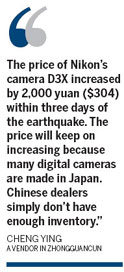
 ?Electronics market faces shortages
?Electronics market faces shortages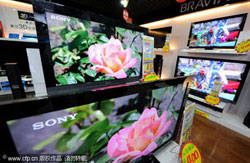
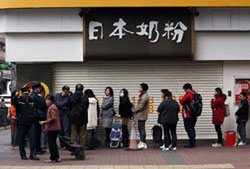
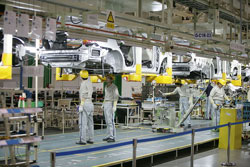
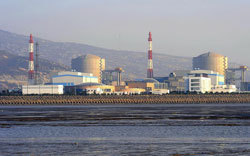


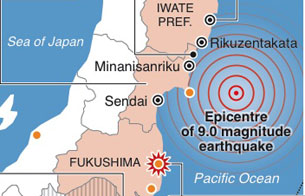
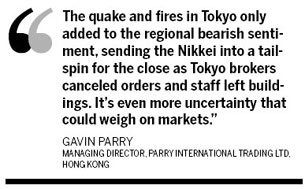
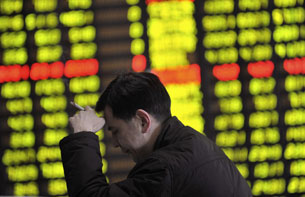
 ?The quake drives Chinese stock market decline:
?The quake drives Chinese stock market decline: